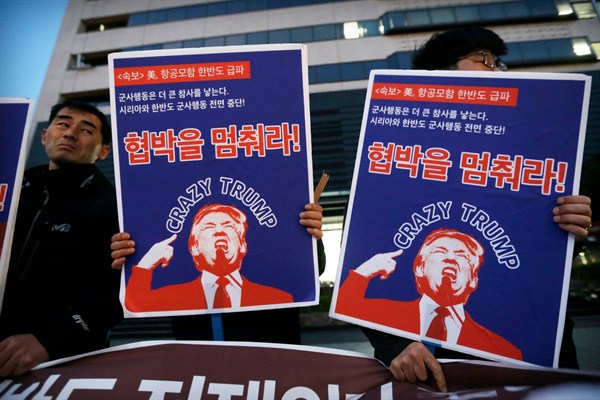Throughout its history, much of American foreign policy has been built on “doctrines” associated with the president who developed them. The Monroe Doctrine indicated that the United States would oppose additional European colonialism in the Western Hemisphere. The Eisenhower and Carter Doctrines stressed the importance to U.S. vital national interests of the Middle East and the free flow of its energy. The Nixon Doctrine pledged U.S. support to nations fighting communism, but said that America would not do it for them. The George W. Bush Doctrine committed U.S. military power to pre-empting and preventing transnational terrorism.
Over the past two months, commentators have begun to ask whether there is or will be a Trump Doctrine. If so, it is hard to identify at this point. Chris Cillizza believes that the Trump Doctrine will simply be “don’t do what Obama did.” Peter Baker sees an undoctrinaire doctrine, writing, “To the extent that a Trump Doctrine is emerging it seems to be this: don’t get roped in by doctrine.” More broadly, Jordan Schachtel argues that in fact there will be no Trump Doctrine “until the president articulates a consistent worldview.”
While it is true that President Donald Trump entered the White House without clear strategic concepts that could produce a defining doctrine, neither did most earlier presidents. From James Monroe to George W. Bush, foreign policy doctrines emerged as a response to a changing or expanding threat rather than from the president’s preconceived ideas. In the opening months of the Trump administration, no unexpected threats arose, and no existing ones changed in some major way. Hence there is no raw material with which to build a foreign policy doctrine.

